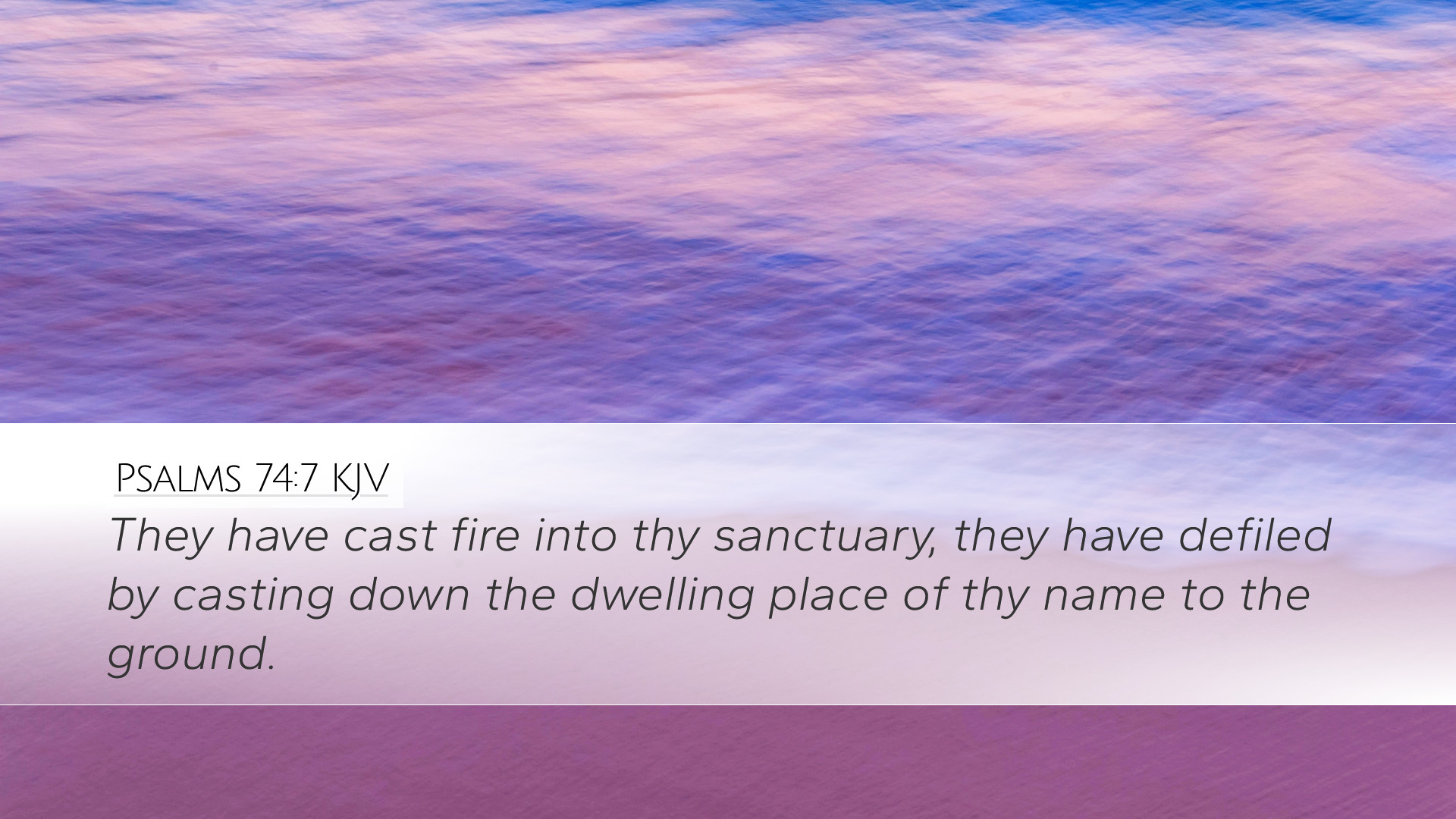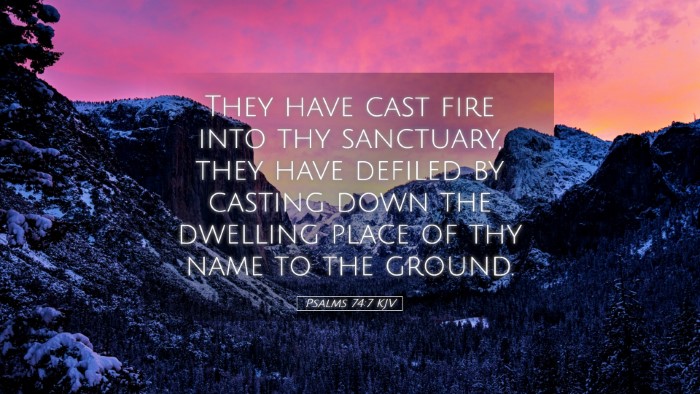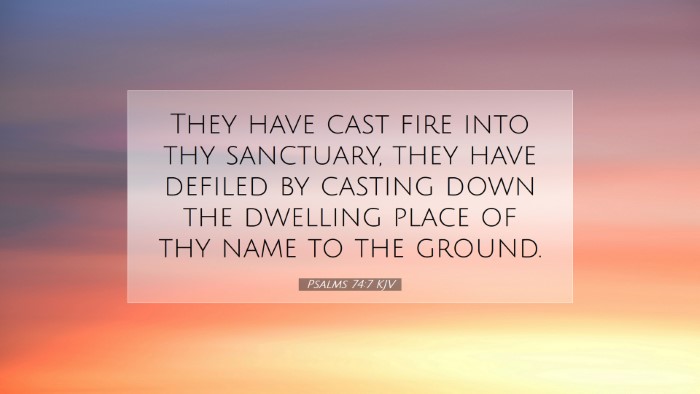Psalms 74:7 Commentary
Bible Verse: "They cast fire into thy sanctuary, they have defiled by casting down the dwelling place of thy name to the ground."
Introduction
The verse of Psalms 74:7 provides a profound insight into the devastation faced by the people of Israel, particularly concerning their sanctuary and the temple, which symbolized the presence of God among them. This commentary aims to synthesize insights from renowned public domain commentaries, offering valuable perspectives for pastors, students, theologians, and Bible scholars.
Contextual Background
Understanding Psalms 74 requires an appreciation of the tumultuous period in which it was written. The psalm likely reflects the period of the Babylonian exile when the temple was destroyed and the nation of Israel faced severe spiritual and physical desolation.
Verse Analysis
1. The Defilement of the Sanctuary
The phrase "They cast fire into thy sanctuary" symbolizes the violent actions taken against places of worship, parallel to the destruction faced during the Babylonian siege. Matthew Henry observes that the enemies not only destroyed but also desecrated, showing contempt for the sacred space associated with God's presence.
2. The Dwelling Place of God
In referring to “the dwelling place of thy name”, the psalmist acknowledges the deep significance of the temple. Albert Barnes notes that the temple was not just a physical structure; it represented God's covenant with Israel and His active presence among His people. This loss led to a profound spiritual crisis.
3. Implications of the Destruction
The psalmist laments the destruction, which serves as a poignant reminder of both God’s judgment and the enemy’s triumph. Adam Clarke emphasizes that this act was not merely physical; it symbolized a theological crisis, challenging the belief in God's sovereignty and protection.
Theological Reflections
1. The Sovereignty of God
Even amidst destruction, the implications of God’s sovereignty are paramount. The psalmist’s lament reflects a personal faith struggle, questioning God's apparent absence. Henry reminds us that God’s allowance of such calamities does not negate His sovereignty but rather serves to test the faith of His people.
2. The Role of Lament
This psalm stands as an example of lament in Jewish literature, an essential aspect of spiritual expression in times of distress. As noted by Barnes, the raw emotional honesty in lamenting is a pathway to rekindle faith, allowing individuals to confront their pain and seek divine restoration.
Practical Applications
1. Understanding Suffering
Today's believers can draw from this passage lessons on suffering. It provides an assurance that even in moments of desolation, God is intimately aware of our plight. The emotion in Psalms 74:7 serves to comfort those experiencing similar feelings of abandonment or loss.
2. The Importance of Sacred Spaces
As contemporary worship transforms, the significance of communal worship spaces stands out. This commentary emphasizes the necessity of reverence for places of worship as sanctuaries of God’s presence. Clarke underscores that modern disillusionment with the church can echo the biblical lament for broken sanctuaries, inviting leaders to restore that which fosters divine connection.
Conclusion
Psalms 74:7 encapsulates deep emotional and theological themes reflecting on the destruction of the temple. By drawing insights from public domain commentaries, we learn about both the historical significance and the contemporary relevance of lament, divine sovereignty, and the sacredness of worship despite external circumstances. Such reflections enable pastors, students, theologians, and scholars to better understand the gravity of separation from God and the hope of eventual restoration.


